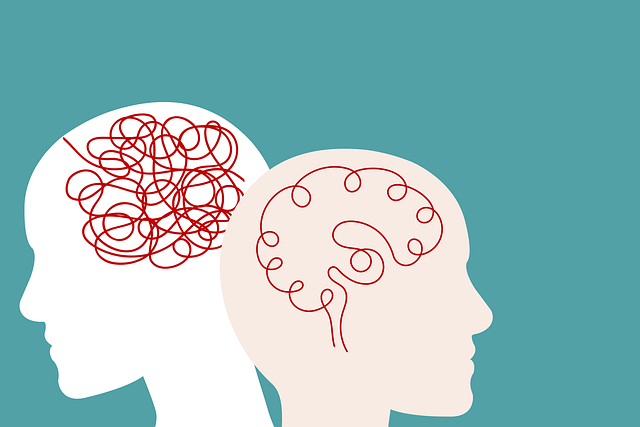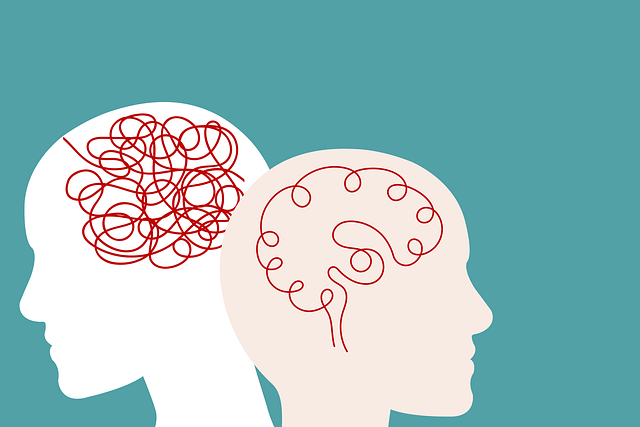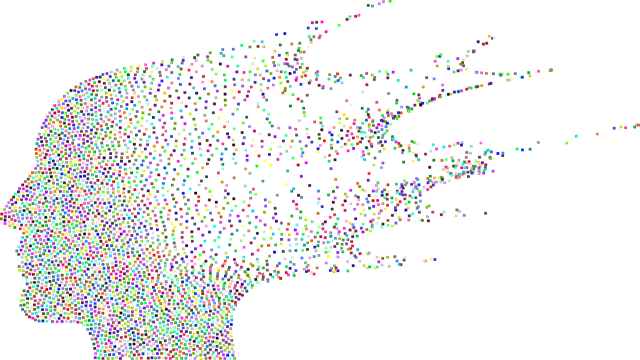Wheat Ridge Developmental Disability Therapy promotes positive thinking as a powerful tool for individuals with developmental disabilities to improve mental wellness and quality of life. By reframing negative thoughts, this approach boosts optimism, coping skills, problem-solving, self-esteem, and communication. Integration of practices like gratitude journaling and mindfulness meditation fosters personal growth, resilience, social interactions, and community participation. Therapists tailor exercises to identify and challenge negative thought patterns, enhance emotional intelligence, and develop effective coping mechanisms. These strategies contribute to mental well-being, reduce stigma, and promote proactive emotional health management. Success is measured through client feedback and behavioral changes, ensuring personalized programs and preventing healthcare provider burnout.
Positive thinking exercises are transforming lives, especially those with developmental disabilities. This article delves into the profound impact of positive thinking on this population, guiding therapists and caregivers through a structured approach. We explore strategies for identifying negative thought patterns specific to individuals with disabilities and offer practical implementation tips tailored for Wheat Ridge Developmental Disability Therapy. Learn how to create personalized routines and measure success, ultimately enhancing the lives of those served.
- Understanding Positive Thinking and Its Impact on Developmental Disabilities
- Identifying Negative Thought Patterns in Individuals with Disabilities
- Creating a Customized Positive Thinking Exercise Routine
- Practical Implementation Strategies for Wheat Ridge Developmental Disability Therapy
- Measuring Success and Adjusting the Positive Thinking Exercise Program
Understanding Positive Thinking and Its Impact on Developmental Disabilities

Positive thinking is a powerful tool that can significantly benefit individuals with developmental disabilities, as advocated by Wheat Ridge Developmental Disability Therapy. By embracing mind over matter principles, those navigating such challenges can enhance their mental wellness and overall quality of life. This approach focuses on reframing negative thoughts into positive ones, fostering a more optimistic outlook. Such an attitude shift isn’t just about feeling better; it’s a practical strategy to improve coping mechanisms and problem-solving skills.
Integrating positive thinking exercises into daily routines can be transformative. Simple practices like gratitude journaling or mindful meditation encourage individuals to recognize strengths and achievements, boosting self-esteem. Moreover, these techniques complement traditional communication strategies, helping users express their feelings more effectively. By cultivating a positive mindset, individuals with developmental disabilities can better navigate social interactions, increase resilience, and promote overall well-being, all of which are essential aspects of personal growth and community participation.
Identifying Negative Thought Patterns in Individuals with Disabilities

Many individuals with disabilities face unique challenges that can contribute to negative thought patterns and a diminished sense of mental wellness. Identifying these patterns is a crucial step in implementing positive thinking exercises, as it allows for tailored interventions at Wheat Ridge Developmental Disability Therapy. Therapists play a vital role in helping clients recognize self-limiting beliefs, cognitive distortions, and emotional triggers that may be hindering their overall well-being.
By fostering emotional intelligence and empathy building strategies, therapists can guide individuals with disabilities towards healthier thought processes. This involves encouraging them to challenge negative thoughts, replace them with more positive and realistic ones, and develop coping mechanisms to navigate challenging situations. Such interventions not only enhance mental wellness but also empower clients to lead more fulfilling lives, fostering a sense of self-efficacy and resilience.
Creating a Customized Positive Thinking Exercise Routine

Creating a personalized positive thinking exercise routine is an empowering step toward enhancing mental well-being. At Wheat Ridge Developmental Disability Therapy, our approach focuses on tailoring activities to suit individual needs and preferences. This involves exploring various techniques such as mindfulness meditation, affirmations, and gratitude journaling. By integrating these practices into daily life, individuals can cultivate a more optimistic mindset and improve their overall emotional resilience.
A key component of this process is adapting the exercises to align with specific goals. For instance, for those engaging in our Community Outreach Program Implementation, positive thinking routines might incorporate reflecting on community contributions and visualizing successful interactions. Similarly, for individuals seeking Depression Prevention strategies, activities can be designed to counter negative thought patterns and promote self-care behaviors. This customized approach ensures that the exercises remain relevant and motivating, fostering consistent engagement.
Practical Implementation Strategies for Wheat Ridge Developmental Disability Therapy

Implementing positive thinking exercises within Wheat Ridge Developmental Disability Therapy can significantly enhance individuals’ overall well-being. Therapists can begin by incorporating Self-Awareness Exercises to help clients identify and challenge negative thought patterns. Encouraging journaling, for instance, allows them to externalize their thoughts, fostering a deeper understanding of their emotional states. This self-reflection is crucial for breaking down stubborn negative schemas.
Additionally, integrating Mood Management Techniques tailored to each individual’s needs can prove effective in promoting positive thinking. Cognitive reframing, a powerful tool within Wheat Ridge therapy, teaches clients to view situations from different angles, replacing negative perceptions with more realistic and constructive ones. Over time, these strategies contribute to Mental Illness Stigma Reduction Efforts by empowering individuals to manage their emotional health proactively.
Measuring Success and Adjusting the Positive Thinking Exercise Program

Measuring success is a vital step in any therapeutic program, and positive thinking exercises are no exception. At Wheat Ridge Developmental Disability Therapy, we employ a multifaceted approach to gauge the effectiveness of our interventions. This involves collecting client feedback through questionnaires and one-on-one interviews, where individuals share their experiences and perceived improvements. Additionally, tracking specific behavioral changes related to mood, stress levels, and overall well-being provides tangible data on the positive thinking exercise program’s impact.
By regularly reviewing these metrics, our team can make informed adjustments to tailor the program to individual needs. This iterative process ensures that the exercises remain relevant and effective in promoting mental resilience, especially for healthcare providers who may be at risk of burnout (Burnout Prevention Strategies for Healthcare Providers). Risk Management Planning for Mental Health Professionals is integrated into this framework, as we recognize the importance of sustainable practices to prevent professional exhaustion.
Implementing positive thinking exercises as part of Wheat Ridge Developmental Disability Therapy offers a powerful tool for enhancing well-being. By understanding negative thought patterns and customizing routines, therapists can create a supportive environment that encourages growth and resilience. Measuring success through observable improvements allows for adjustments, ensuring the program remains effective and tailored to each individual’s unique needs. This approach not only benefits individuals with developmental disabilities but also provides valuable insights into the transformative potential of positive thinking.








